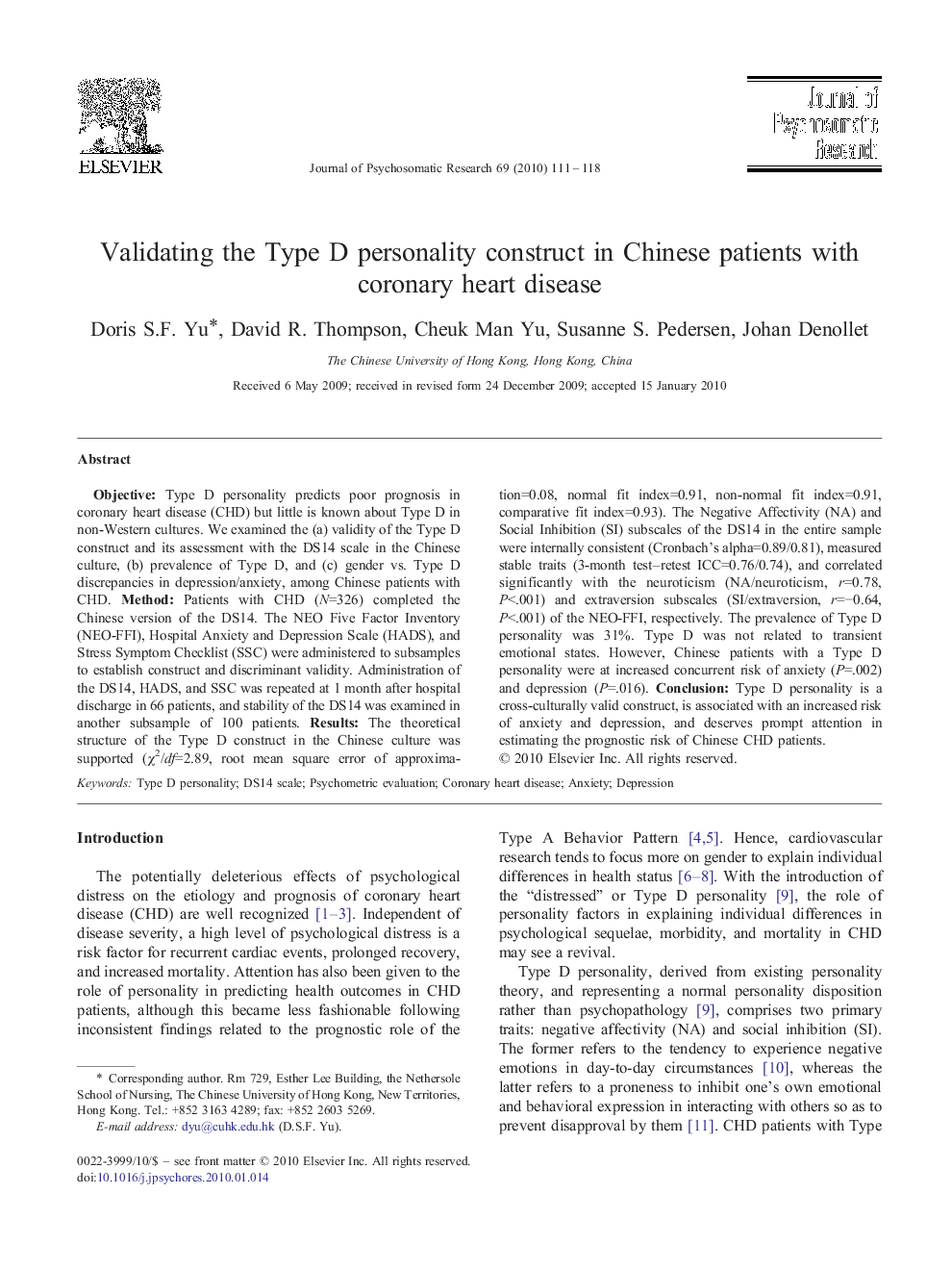| کد مقاله | کد نشریه | سال انتشار | مقاله انگلیسی | نسخه تمام متن |
|---|---|---|---|---|
| 950446 | 926824 | 2010 | 8 صفحه PDF | دانلود رایگان |

ObjectiveType D personality predicts poor prognosis in coronary heart disease (CHD) but little is known about Type D in non-Western cultures. We examined the (a) validity of the Type D construct and its assessment with the DS14 scale in the Chinese culture, (b) prevalence of Type D, and (c) gender vs. Type D discrepancies in depression/anxiety, among Chinese patients with CHD.MethodPatients with CHD (N=326) completed the Chinese version of the DS14. The NEO Five Factor Inventory (NEO-FFI), Hospital Anxiety and Depression Scale (HADS), and Stress Symptom Checklist (SSC) were administered to subsamples to establish construct and discriminant validity.Administration of the DS14, HADS, and SSC was repeated at 1 month after hospital discharge in 66 patients, and stability of the DS14 was examined in another subsample of 100 patients.ResultsThe theoretical structure of the Type D construct in the Chinese culture was supported (χ2/df=2.89, root mean square error of approximation=0.08, normal fit index=0.91, non-normal fit index=0.91, comparative fit index=0.93). The Negative Affectivity (NA) and Social Inhibition (SI) subscales of the DS14 in the entire sample were internally consistent (Cronbach's alpha=0.89/0.81), measured stable traits (3-month test–retest ICC=0.76/0.74), and correlated significantly with the neuroticism (NA/neuroticism, r=0.78, P<.001) and extraversion subscales (SI/extraversion, r=−0.64, P<.001) of the NEO-FFI, respectively. The prevalence of Type D personality was 31%. Type D was not related to transient emotional states. However, Chinese patients with a Type D personality were at increased concurrent risk of anxiety (P=.002) and depression (P=.016).ConclusionType D personality is a cross-culturally valid construct, is associated with an increased risk of anxiety and depression, and deserves prompt attention in estimating the prognostic risk of Chinese CHD patients.
Journal: Journal of Psychosomatic Research - Volume 69, Issue 2, August 2010, Pages 111–118